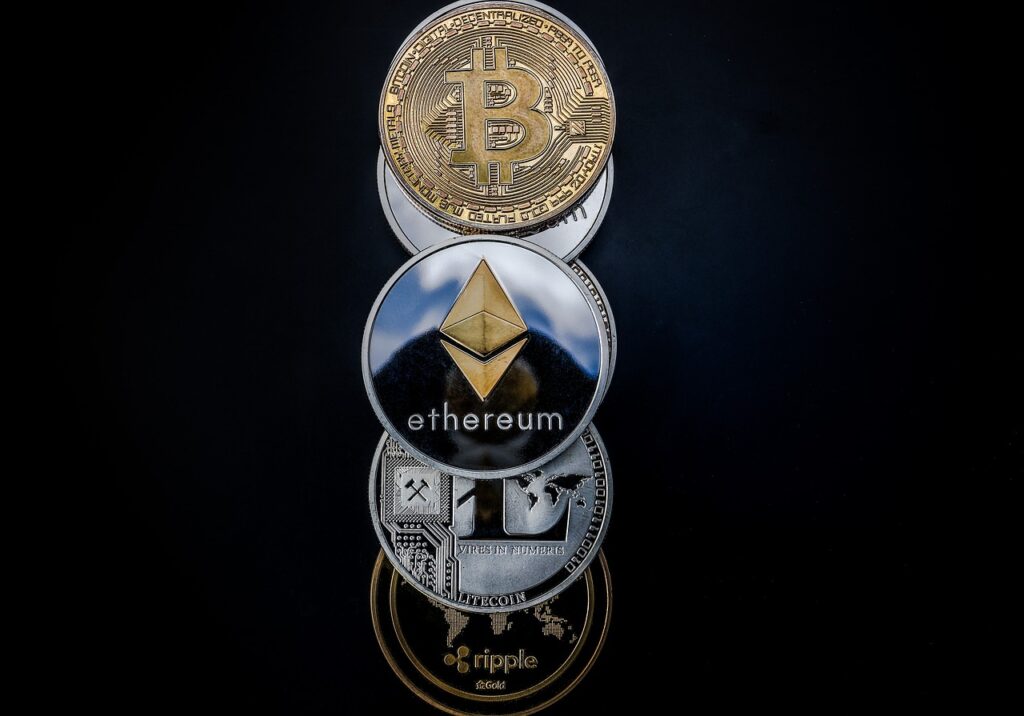A high ranking Securities and Exchange Commission official recently asserted that the digital currency Ether is not a security, although many digital tokens sold in Initial Coin Offerings are securities and therefore subject to federal securities laws. The statements provide additional clarity around cryptocurrencies and ICOs.
Bitcoin and Ether
Financial regulators have been wading into the exploding market for cryptocurrencies over the last year. Speaking at the Yahoo! All Markets Summit in San Francisco on June 14, the director of the SEC’s Division of Corporation Finance, William Hinman, said current offers and sales of Ether are not securities transactions. Hinman’s comments come after SEC Chairman Jay Clayton made similar statements previously about bitcoin, the world’s largest cryptocurrency by market capitalization (ether is the second largest). Hinman said a central issue in determining whether a digital asset is a security is the expectation of return by a third party. So too is determining whether the asset is decentralized, with no central actor whose efforts are a key to the success.
“If the network on which the token or coin is to function is sufficiently decentralized – where purchasers would no longer reasonably expect a person or group to carry out essential managerial or entrepreneurial efforts – the assets may not represent an investment contract.”
An investment contract is one type of investment that is a security. The U.S. Supreme Court in Securities and Exchange Commission v. W. J. Howey Co. established a test for determining whether a particular transaction is an investment contract, which requires an investment of money in a common enterprise with an expectation of profit from the efforts of others. Hinman said the network on which Bitcoin and Ether function appear to be sufficiently decentralized. “As with Bitcoin,” he added, “applying the disclosure regime of the federal securities laws to current transactions in Ether would seem to add little value.”
ICOs
Hinman, however, reiterated the SEC’s position that many ICOs are securities offerings. One key factor, he said, is the expectation of purchasers. The director said in many ICOs promoters tout their ability to create an innovative application of blockchain technology and typically, the viability of the application is still uncertain. The purchaser must therefore rely on the efforts of the promoter to build the network.
“At that stage, the purchase of a token looks a lot like a bet on the success of the enterprise and not the purchase of something used to exchange for goods or services on the network,” he said.
Conclusion
Hinman’s comments provide helpful guidance on how the SEC will analyze ICOs and cryptocurrencies. Many lawyers have argued that a token, by itself, may not be a security, even if the contract under which it is is sold is a security. Hinman appears to agree, saying “the token…all by itself is not a security.” He suggested the focus should not be on the digital asset itself, but rather the circumstances surrounding the digital asset and the manner in which it is sold, while also emphasizing that the form of a transaction is not as important as the economic reality.
The director ended his speech by outlining several questions that promoters and their attorneys should ask in determining whether a digital asset is a security:
- Is there a person or group that has sponsored or promoted the creation and sale of the digital asset, the efforts of whom play a significant role in the development and maintenance of the asset and its potential increase in value?
- Has this person or group retained a stake or other interest in the digital asset such that it would be motivated to expend efforts to cause an increase in value in the digital asset? Would purchasers reasonably believe such efforts will be undertaken and may result in a return on their investment in the digital asset?
- Has the promoter raised an amount of funds in excess of what may be needed to establish a functional network, and, if so, has it indicated how those funds may be used to support the value of the tokens or to increase the value of the enterprise? Does the promoter continue to expend funds from proceeds or operations to enhance the functionality and/or value of the system within which the tokens operate?
- Are purchasers “investing,” that is seeking a return? In that regard, is the instrument marketed and sold to the general public instead of to potential users of the network for a price that reasonably correlates with the market value of the good or service in the network?
- Does application of the Securities Act protections make sense? Is there a person or entity others are relying on that plays a key role in the profit-making of the enterprise such that disclosure of their activities and plans would be important to investors? Do informational asymmetries exist between the promoters and potential purchasers/investors in the digital asset?
- Do persons or entities other than the promoter exercise governance rights or meaningful influence?






Thank you for writing this Amit, – it is useful and interesting!